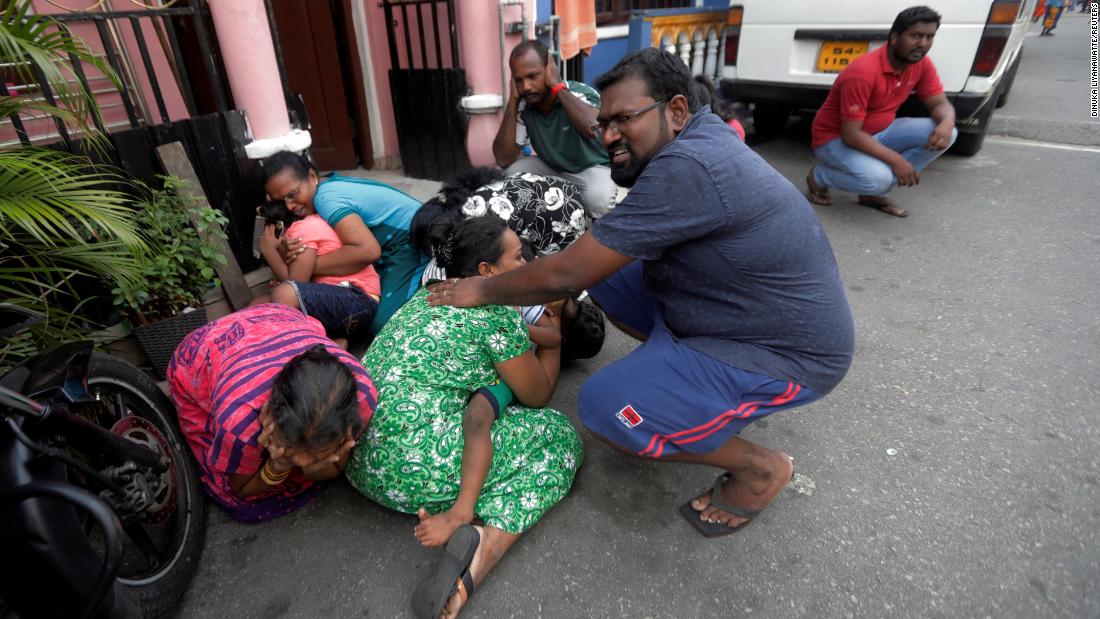
It was by far the deadliest attack to strike Sri Lanka since the dark days of its brutal 26-year civil war, which ended in 2009. And it shattered the relative stability that had prevailed in the country in the subsequent decade.
According to Sri Lankan officials, a small and little-known extremist outfit named National Tawheed Jamath (NTJ) carried out the attack. Indeed, NTJ is no jihadist juggernaut; it's an entity mostly known for defacing Buddhist statues.
It's downright terrifying that such a modest and under-the-radar organization previously known for little more than vandalism could pull off such a sophisticated and catastrophic attack.
In recent years, similarly complex and well-choreographed mass-casualty assaults across the globe have been carried out by the household names of the terrorism world -- al-Qaeda, ISIS, Lashkar-e-Taiba, al-Shabab, Boko Haram, the Taliban, and so on.
Accordingly, one would assume, as Sri Lankan officials have suggested, that NTJ received outside help.
But this raises perplexing questions.
Al-Qaeda and ISIS would be logical partners; both have carried out attacks like Sunday's in the past. However, these groups have been badly degraded. They do each boast a South Asia affiliate, with some reach beyond the Afghanistan-Pakistan region where they're largely based.
But they're not known to have a track record, much less a footprint, in Sri Lanka.
Furthermore, had al-Qaeda or ISIS been involved, one would have expected a claim of responsibility. There was none. For that matter, NTJ didn't claim credit either.
Several other things don't make sense. In recent years, Sri Lanka has seen some anti-Muslim sentiment, fueled by Buddhist extremists, and it has led to episodic attacks on Muslim targets. But Sri Lanka doesn't have a history, past or present, of problems with Islamist radicalization.
Furthermore, if an Islamist radical group wants to stage an attack in Sri Lanka, one would expect it to hit out at the Buddhists with whom Muslims have clashed -- and not the Christians targeted in Sunday's strikes.
So, what to make of this all?
There's always the possibility that another group staged the attack -- but Sri Lankan officials have been emphatic that NJT was behind it.
Alternately, the perpetrators may have received help from partners other than al-Qaeda or ISIS.
Pakistan's Lashkar-e-Taiba and Bangladesh's Jamaat-ul-Mujahideen Bangladesh, for example, have enjoyed cross-border reach. But their capacity and desire to assist with such a large-scale attack is questionable.
From the facts that have emerged so far, the most likely explanation is simple: NJT was quietly able to tap into small pockets of radicalized constituencies, and slowly develop the capacity and resources to strike.
And because of Sri Lankan government dysfunction, it was able to execute this plan with little resistance—and quite successfully.
Since Sunday, media accounts have painted an alarming picture of Sri Lankan authorities failing to act on multiple advance intelligence reports that underscored the threat of NJT-patented bombings.
A feud between Sri Lankan President Maithripala Sirisena and Prime Minister Ranil Wickremesinghe may have contributed to people on high levels -- including Wickremesinghe -- not knowing about this intelligence. And Sirisena, who did know about it, did not act on it.
In effect, NJT had plenty of time to attract recruits.
Links could also have been made from the 32 Sri Lankans estimated to have fought for ISIS in Syria and Iraq, or from connections to ISIS or al-Qaeda figures in South Asia.
Sri Lanka's government now faces a major reckoning. It must confront a dramatic new terrorist threat, address a fresh political crisis brought on by its multiple intelligence failures, and bring a semblance of unity and calm to a grieving nation at risk for reprisal attacks and other societal unrest.
That's a tall order for any government, but especially for one riven with high levels of division and dysfunction--the very qualities that likely helped a small terror group seemingly come out of nowhere to pull off an unthinkable act.
No comments:
Post a Comment